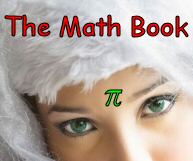Monday, September 17, 2007
Hebrew Bible views on women

Women in the Tanakh are not the social or economic equals of men. At the time it was written, married women were largely subject to the wishes of their husbands, and unmarried women to the wishes of their fathers. For example, a woman needed consent from her father before she could take religious vows (Book of Numbers 30:3-5). This situation was roughly similar to that of women in the surrounding countries of the time.
Women were not considered mere possessions, however. The killing of a woman was considered murder, not theft. A wife could not be disposed of at her husband's whim, or divorced without reason. Women could own property, and a daughter could inherit her father's property (if there were no sons). They could engage in business and trade (Book of Proverbs chapter 31). Although there are frequent references in the Tanakh to a wife being traded in exchange for money or goods, this was not a simple commercial transaction. Rather, it was a gift to compensate the bride's family. Such gifts, called a dowry, are common in the Near East today. Arranged marriage was the norm for both sons and daughters (Genesis 21:21; Genesis 38:6; Book of Judges 1:12,13) although the bride was sometimes asked for her consent (Genesis 24:58) and sometimes the son chose a wife for himself (Genesis 34:4). This article is licensed under the GNU Free Documentation License. It uses material from the Wikipedia article "Hebrew Bible views on women". This entry is a fragment of a larger work. Link may die if entry is finally removed or merged.
<< Home
 The Wikipedia Knowledge Dump (WikiDumper.org)
The Wikipedia Knowledge Dump (WikiDumper.org)


